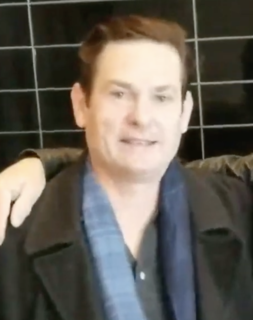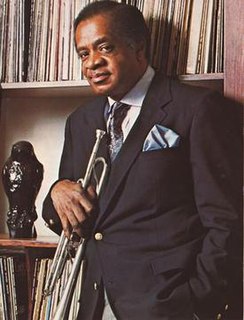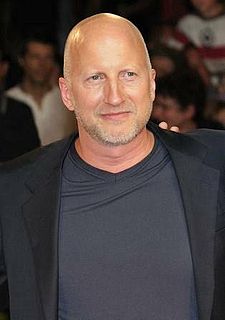A Quote by Henry Thomas
I remember, when I was a kid in the '70s and '80s, the '50s were really cool. And then the '60s were really cool. And then the '70s.
Related Quotes
I think Hollywood has gone in a disastrous path. It's terrible. The years of cinema that were great were the '30s, '40s, not so much the '50s...but then the foreign films took over and it was a great age of cinema as American directors were influenced by them and that fueled the '50s and '60s and '70s.
There's nothing that hasn't happened before, guys. In the '80s we were all doing the '60s. In the '90s, we were doing the '70s. There's not one way to wear jeans anymore though. Flared, skinny, ripped, high, low, whatever. It used to be that there was one cool jean. There was a while where it was stonewashed, god forbid.
When you talk to women who were working as print journalists or in broadcasting in the '50s, and then you talk to women who were working in the late '60s, there's an enormous difference. There had already been a huge transition. Then, of course, you get well into the '70s and there were women with children working.
I wouldn't say I really admired anyone. When I was a kid, there were definitely a lot of tough guys, but they weren't really cool. If anything, that was an influence on me: to take that toughness and combine it with the cool style, the cool entrance, the cool gear - and driving to work in a Ferrari.
For me, the stamp that I impose on stuff comes from the fact that in the '80s, when I was starting to write movies, I looked back to the '70s. So the films I enjoyed as a kid were the thrillers that came out of the '70s. Back then, you didn't have action movies; you had adventure films or thrillers.
I was a child of the '60s basically, which is a real blank. I really started growing up, I think, in the '70s. I'm a glam-rock kid. But Dublin, Ireland in those days was a very dark place, as in it was a very poor, almost third world. Economically, the whole world is going through a recession at the moment. In the '60s, '70s, and the '80s in Ireland was a real recession. It wasn't a pleasant place.
The 60s were a continuation of the 50s much more than people realized. Certainly in some countries, like Britain, there was still a culture of deference, whereas in the 70s we really are in a time of angry transition. The generation that came into young adulthood in the 70s couldn't find jobs; that wasn't true in my generation. They entered a time when two depressing things hit them both at the same time.



































